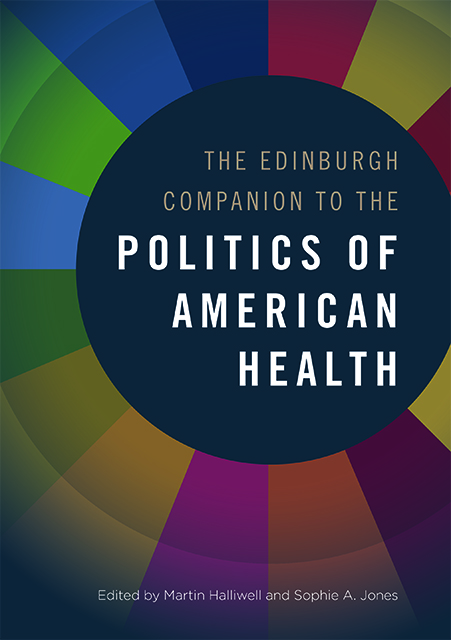Book contents
- Frontmatter
- List of Contents
- Notes on Contributors
- Introduction: The Political Landscapes of American Health, 1945–2020
- I Geography, Community and American Health
- II Critical Health Conditions: Debates and Histories
- III The Politics of Children's Health
- IV The Institutional Matrix of Health Care
- V The White House, Congress and Health Reform
- VI Justice, Ethics and American Health
- VII Public Health and Global Health
- General Bibliography
- Index
8 - A System in Crisis: US Health Care Politics and the AIDS Epidemic
Published online by Cambridge University Press: 12 August 2023
- Frontmatter
- List of Contents
- Notes on Contributors
- Introduction: The Political Landscapes of American Health, 1945–2020
- I Geography, Community and American Health
- II Critical Health Conditions: Debates and Histories
- III The Politics of Children's Health
- IV The Institutional Matrix of Health Care
- V The White House, Congress and Health Reform
- VI Justice, Ethics and American Health
- VII Public Health and Global Health
- General Bibliography
- Index
Summary
‘The drastic slashing of CDC funds for combating VD is paralyzing VD control across the country, and an inevitable plague will hit in less than five years and strike with greatest destructiveness gay men’, wrote the director of the Washington DC Gay Men's VD Clinic in March 1977. His warning turned out to be prophetic, though he could not have envisaged the scale and impact of HIV/AIDS in the United States between 1981 and the present. After initial reports of rare opportunistic infections in gay men at the beginning of the 1980s, the AIDS epidemic spread rapidly through the population, killing more than 100,000 Americans by the end of the decade. And the AIDS crisis is far from over: 2018 statistics released by the Centers for Disease Control and Prevention (CDC) reveal that 37,968 Americans received an HIV diagnosis that year, the majority of them people of colour, and 15,820 people with HIV died, despite antiretroviral drug therapies developed in the 1990s providing longer life expectancies to those who have access to treatment. From the onset of the epidemic to 2019, an estimated 76 million people worldwide have been infected with HIV, and an estimated 33 million have died of AIDS-related illnesses.
It is not enough to view the AIDS crisis as a simple dress rehearsal for the Covid-19 pandemic of 2020–21. Doing so would ignore key differences between the epidemiology, aetiology and policy imperatives of the two diseases. Yet, the public health and political response to HIV/AIDS in the 1980s and 1990s presaged some of the same health inequalities and policy failures that continue to confront us in the twenty-first century. Unlike the anaemic early reaction to AIDS, the public health and scientific response to Covid-19 was swift and dramatic, thanks in part to the airborne communicability of the virus and its rapid impact on the entire population. However, much like the emergence of AIDS four decades prior, the era of Covid has revealed the horrendous (and ongoing) consequences of neoliberal politics for the socially and economically marginalized. During both health care crises, many Americans either lacked adequate health care access, or avoided seeking treatment altogether due to the associated costs and the reality of discriminatory and stigmatizing health care settings for minority populations.
This chapter examines efforts to provide health care to HIV-positive people in the United States during the 1980s.
- Type
- Chapter
- Information
- The Edinburgh Companion to the Politics of American Health , pp. 133 - 148Publisher: Edinburgh University PressPrint publication year: 2022



